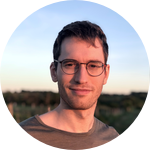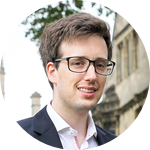About This Project
1 in 4 people have received a COVID-19 vaccine in high-income countries, but only 1 in 500 have in low-income countries (April 2021). A global strategy is needed to save lives, prevent mutations, and kickstart economic recovery.
But how willing are people in resource-rich countries to share? What makes them donate towards vaccines in times of adversity?
We study human behaviour at the confluence of altruism and self-interest to develop guidance for the design of a global vaccine strategy.
Ask the Scientists
Join The DiscussionWhat is the context of this research?
Many countries cannot afford or access vaccines and rely on donations or surpluses from richer countries. Vaccine inequity may endanger the health and livelihood of communities around the globe as 80% of the population in resource-poor countries may not receive a vaccine in 2021.
Although the issue has been debated for nearly a year, only few countries, like Norway, committed to sharing vaccines early. Equitable global vaccine distribution is feasible and it reduces not only the number of deaths and economic hardship but also the occurrence of viral mutations with potentially devastating effects.
Hence, vaccine redistribution to resource-poor countries can be justified through altruism and/or self-interest. Our study aims to measure how these motives impact the willingness to donate.
What is the significance of this project?
Understanding the inclination of resource-rich countries to share is essential for ensuring that vaccine redistribution policies are accepted among the general public. On a population level, we know that people give more in times of economic prosperity, and are equally willing to give to their community and outside of it.
The current situation, however, is unprecedented. We will collect data to understand individuals’ willingness to share after a year of physical, financial and emotional hardship. This is particularly pertinent as vast amounts of private and public money are spent on global vaccine distribution initiatives. Accurate data on individuals’ attitudes towards vaccine sharing is crucial to guide public policy and vaccine investments abroad.
What are the goals of the project?
We conduct an online experiment to determine influencing factors on vaccine sharing behaviour of individuals in resource-rich countries. We investigate how providing information on the current global health situation may affect sharing behaviour.
In different treatments (including a control group), we present our subjects with facts appealing to altruism or self-interest as a narrative for sharing vaccines. We also collect data on vaccine history and exposure to hardship during the pandemic. Finally, subjects are presented with the choice of donating a portion of their participation rewards to a vaccine access initiative such as COVAX. Our goal is to support the design of a global vaccination strategy with data on individual sharing behaviour, laying a foundation for policy and outreach.
Budget
The baseline study costs $9350. All budget items include experiment.com fees. We are able to cover $3000 from university research funds. The remaining $6350 we plan to fund through experiment.com. The majority of our budget ($7650) goes towards paying the participants in our experiment ($15 x 450 subjects + fees). Depending on the subjects' inclination to share, a portion of their payments is donated to COVAX and other initiatives that bring COVID-19 vaccines to people who need it most in resource-poor countries.
To guarantee professional and independent data collection, we will work with established research centres, whose services will incur a fee of $1100.
Finally, we present participants in our survey with educational content. For this to be most effective, it will be delivered in visual and written format. Producing educational video material will cost $500.
After the initial target, we will continue to raise funds to run a more complex design with group effects.
Endorsed by
 Project Timeline
Project Timeline
Between June 13 (the end of our fundraising campaign) and June 27 (2021), we will submit our experimental design for ethics review. Between June 27 and July 11, we will set up the experiment online on our preferred platform, and ensure it works appropriately. Data will be collected from July 11, and processed until August 8. A first draft summary of our results will be released on August 22.
May 28, 2021
Project Launched
Jun 27, 2021
Finalize design / apply for ethics review
Jun 28, 2021
Complete funding
Jul 11, 2021
Start data collection
Jul 25, 2021
Finish data collection
Meet the Team
Team Bio
We are a team of researchers who are excited about tackling global vaccine inequity as members of the MD4SG development working group. This group fosters collaboration and discussion amongst practitioners and academics to understand and tackle issues in emerging nations and under-resourced settings. We study how techniques from algorithm and mechanism design, social science, and optimisation can inform and help advance existing development policies and practices.
Simon Finster
Simon is a final year PhD student in Economics at the University of Oxford and Nuffield College. In his current work, he studies market equilibria in economies where participants have distributional preferences, that is, they care about fairness or market concentration. He also designs (virtual) lab experiments to study bidding incentives in allocation mechanisms for multiple objects. Simon is also a member of the MD4SG development healthcare working group. In the scope of this project, his main interest is to understand how individual behaviour can guide COVID-19 public health policy.
Edwin Lock
Edwin is close to finishing his DPhil (PhD) in computer science at the University of Oxford. His work currently focuses on efficiently solving auctions and eliciting demand expressed in compact bidding languages. He is also a co-founder of Test and Contain, a project that aims to utilise limited testing resources to minimise the impact of COVID-19 on the health and livelihoods of those who are hardest hit in LMICs. He also co-organises the MD4SG development healthcare group, which is currently working on school reopening strategies in the Global South and understanding the impact of vaccine distribution inequities across the globe.
Michelle González Amador
Michelle is a PhD fellow at Maastricht University and United Nations University - Maastricht Economic and Social Research Institute on Innovation and Technology (UNU-MERIT). Her research focuses on the influence of psychosocial factors and social networks on human capital investment choices of adolescents. Her methodological interests include impact evaluation and social and complex network analysis. She is also a co-organizer of the MD4SG Latin America and Caribbean working group, and the MD4SG Development Education working subgroup.
Additional Information
Our research project forms part of a set of MD4SG projects on vaccine equity, which focus on understanding the consequences of different vaccine distributions around the globe and developing policy recommendations for an effective global vaccination strategy. Faced with a highly unbalanced vaccine supply, understanding individuals’ attitudes and behaviours towards sharing is a crucial first step in designing redistribution policies.
We plan to roll out our experiment first in the US, but with sufficient support from you, we plan to conduct further experiments in the UK and Germany. The data we collect, as well as our results, will be made available on GitHub, ArXiv and on our personal websites. We will also provide backers with bi-weekly research updates and visuals of our results, and we will be available to answer questions you may have about our findings.
Project Backers
- 47Backers
- 108%Funded
- $6,906Total Donations
- $146.94Average Donation




